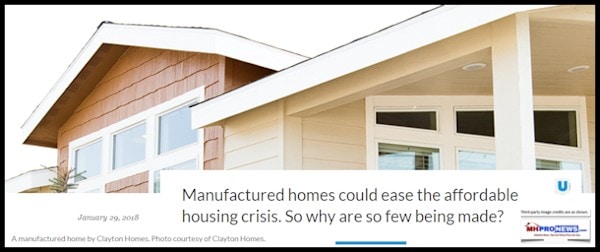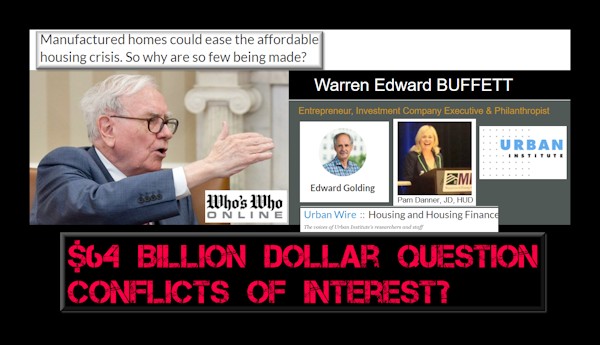
Introduction
When you do the math, it is far more than a $64 billion dollar question, as an upcoming report will outline.
But that $64 billion dollar number – roughly ten times the retail output for all of manufactured housing in 2017 – will help industry readers focus on why this analysis matters to professionals, investors, public officials, taxpayers, and others.
Several new revelations spark the question posed by the headline and top graphic.
Regular Daily Business News readers recall that just days ago, the Urban Institute (UI) issued a report with a powerful and timely question. It’s one that every industry professional, investor, taxpayers, and public officials ought to be asking.
It’s a question that when the answers are understood, ought to be processed, and then acted upon.
It’s this.
“Manufactured homes could ease the affordable housing crisis. So why are so few being made?”
It’s a powerful, important topic. One could applaud UI for raising the issues.
So, why does that widely-respected non-profit group’s work appear to be laced with so many problematic statements, omissions, or outright errors?
To be sure, the UI report does have some accuracies too. But the inaccuracies and missed insights abound, which those missed items would often require an expert to spot them. What explains that problem?
The Daily Business News will examine that issue, after we look at some quotable quotes related to the new Urban Institute (UI, urban.org) manufactured housing research report.
Those quotes below from insiders will shed light on the headline question.
Context for the quotes, and fact checks that follow, are found in our initial analysis of their report – which includes the complete Urban Institute article as a download. That’s linked in the Daily Business News report below.
“Follow the Money” – Controversial Urban Institute Report on Manufactured Housing
New, Quotable Quotes About the Urban Institute Research, Report
“Just now starting to read the UI report on MH in detail. First thing that jumped out was one of the authors, Edward Golding. Golding was Pam Danner’s boss at HUD before [POTUS] Obama left town,” read a news tip earlier this week sent into the Daily Business News.

That source continued, “He [Golding] had the power, accordingly, to remediate the number one reason they list for low production — restrictive zoning (via federal preemption). He also had direct power over one reason that is omitted — excessive regulation that unnecessarily increases costs and excludes lower-income people from the market,” stated a source with federal ties in the Washington, D.C. metro.
That source’s message included more details, that we may reveal in a future report.
With the above tip, another source with HUD was asked about Edward Golding. That second source replied to MHProNews as follows.
“Pamela [Danner, JD, the recently-removed HUD Manufactured Housing Program Administrator] had a direct report to the Deputy Assistant Secretary for Risk Management and Regulatory Affairs…The big boss was Ed Golding, Principal Deputy Assistant Secretary Housing/Federal Housing Administration–(he made final policy decisions, signed off on Advisory Appointments, regulatory changes, etc.). Pamela met with him on a regular basis…he was interested in the program. Dana Wade currently holds this position...” – said that HUD-insider source, as part of a longer message with still more insights.
Golding’s LinkedIn profile also indicates that he worked for HUD.
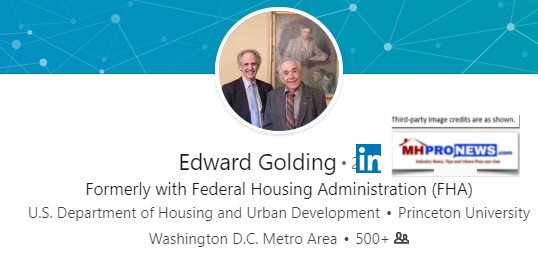
The Daily Business News asked two sources at the Urban Institute about Golding, and why his connections to the HUD Code manufactured home program were not disclosed as part of their report? Their reply?
Silence.
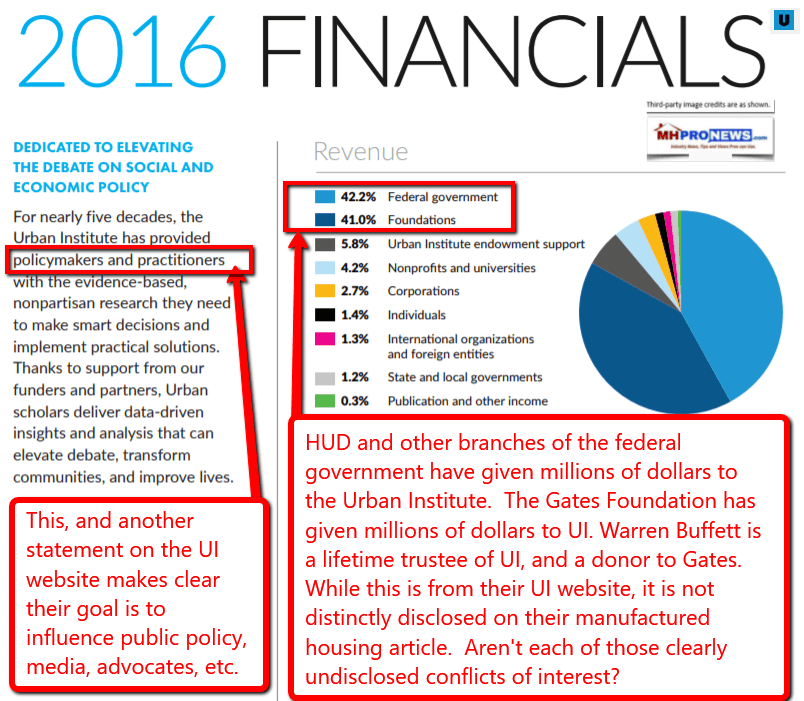
Fact Checks and Analysis
This analysis rhetorically asks an important question in the headline.
Did officials at the Urban Institute understand all of the dynamics that went into the real issues their headline question on why manufactured home sales are so low would take them?
- Or did professionals involved in their report in some fashion mislead UI?
- Does UI understand that they’ve created an apparently problematic report?
- Their MH focused research arguably was driven by Berkshire Hathaway/MHI agendas that most would not be aware of without serious study. But how could they fail to link or clearly state those apparent conflicts of interest from their research post?
Those are open questions. Some factual issues that were brought to their attention have not yet been addressed, as of 2.10.2018 at 10:35 AM E.T.
What seems certain is that Urban Institute contacts were unable, or unwilling, to reply to new questions that flowed in communications between UI and MHProNews.
As a reminder to industry readers, they were initially very prompt and responsive. They stated in writing how they very much cared about accuracy. Their website says they are evidenced based, and will report where the facts and evidence leads them.
But when the questions became more challenging, little or no response has come from UI.
For example, UI was asked the following via email by MHProNews publisher L. A. “Tony” Kovach.
“Edward Golding. Golding previously was Pam Danner’s boss at HUD…I’m told that Golding used to be Pam Danner’s ‘boss’ at HUD. Comment? Clarity?”
Two full days after that was asked of more than one official contact there, people that previously reacted promptly – in the above case – UI has not yet responded.
Other substantive issues have been raised about their research and report, also with no response.
Pam Danner & HUD’s Troubled MH Program “Leadership”
Yet manufactured housing professionals know that Pam Danner, JD, is at the heart of much of the controversy in recent years over the program’s overreaches since her tenure as administrator over HUD Code manufactured housing began.
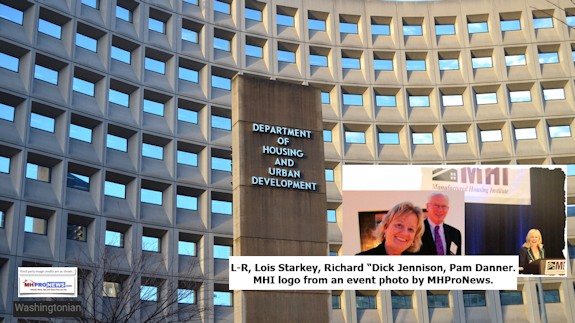
The Edward Golding – UI MH report co-author – news tips to the Daily Business News are revelations. They are part of an apparently broader pattern of potential conflicts of interests, problematic statements, and other issues related to UI’s controversial manufactured housing report.
Golding obviously knew Danner, and presumably the problems and controversies that went with Danner.
So who besides Golding knew what, and when at UI?
Which again begs these questions.
- Was the Urban Institute in some way(s) mislead into how their report was framed, and thus published?
- Or did UI knowingly issue a document laced with a mix of accurate, inaccurate, false, incomplete, and misleading information?
- And did the Urban Institute’s top level officials realize the numerous conflicts of interest involved in their report?
Breaking Last Night…
Last night’s bombshell about two state associations that have broken ties with MHI, including a linked letter that explains their reasons for quitting the association, are precisely the type of insights that genuine third party research should be carefully considering.
Why?
Because ongoing controversies about MHI’s failure to perform its most basic functions are at the heart of many issues that have long kept the industry from advancing more rapidly.
When one reads that newly-released state association’s published letter, a different picture emerges than the one that UI’s report paints.


For any who may think that it is only MHARR, MHProNews or a few MHI Insiders who’ve raised concerns, the evidence is mounting otherwise.
Can You Spell ‘Monopoly’ and ‘the Moat?’
Warren Buffett in his own words spells out time and again his theory of “the moat.” Or how he hates competition. One of several possible examples is linked below.

Warren Buffett Wants an MH Shark Tank – Clayton, 21st, MHI, ‘Gift that Keeps Giving’
Then there is Kevin Clayton’s video interview. In it, Clayton is repeatedly saying in his own words what Buffett is teaching about the moat and competition. Version 2.0 of that Clayton video, with text commentary, includes references on how foundations and non-profits are part of the Buffett-Clayton plan. Keep in mind that the Urban Institute and the Manufactured Housing Institute are non-profits.
Kevin Clayton Interview-Warren Buffett’s Berkshire Hathaway, Clayton Homes CEO
Not a word of Kevin Clayton’s is altered in the video, but textual commentary that helps enhance understanding and spotlights issues has been added.
That’s what makes the video revealing and compelling. If it were a deposition in an anti-trust case, is it likely that Clayton would have said the same things?
For a studious person with a long-term view, like Warren Buffett, the time needed to view and do the related reading would be a no-brainer.
Anyone interested in understanding the issues that the Urban Institute missed must devote time to watching a nearly hour long Clayton video. Then more time is necessary to read the content related to it. Are Buffett and Clayton counting on thousands of pros not investing the time needed to understand what’s going on in their own industry? Or how that impacts independents?
Is that why so much of the truth is hiding in plain sight? Supreme confidence, no fear?
In light of the wording of anti-trust laws, it is difficult to see how these kinds of statements, admissions, and fact-patterns by Buffett and Clayton can be understood as anything other than monopolistic in nature. While we are not attorneys, we have asked for a legal opinion, which concurred with our concerns. In America – with good reason – there is a presumption of innocence until guilt is proven or pled to in a court of competent jurisdiction. It is for a court(s) of law, and/or federal agencies, to determine if laws appear to have been broken.
Federal Investigations Underway
But concerns over illegalities arise and are studied before charges and/or a suit(s) can be brought. Several sources in and outside of the Beltway in D.C. tell MHProNews that numerous federal investigations are underway.
Some of those investigations are public record. So why didn’t UI mention them?
Lawsuits for Triple Damages – Anti-Trust, Anti-Monopoly Law, Manufactured Housing, and You
An Industry Snoring Instead of Roaring…
Harvard’s Eric Belsky projected that manufactured housing was poised to take over conventional housing. Why hasn’t that Harvard expectation happen? The preceding question ought to be understood as similar to UI’s headline question.
When experts expected manufactured housing to soar, what explains the fact that it snores? Because Belksy was aware of lending and repossession issues, and he still believed that for several reasons, manufactured housing would surpass conventional housing.
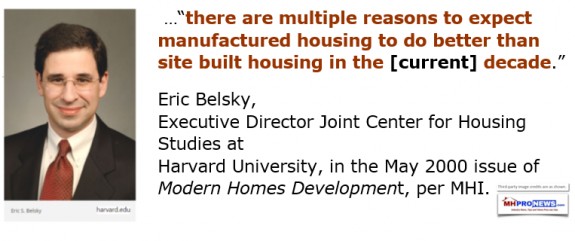
Does MHI President’s quote in the 18 second video below – advocating for slow growth – reflect one of many reasons? What normal industry association CEO would say something like that? Was Buffett/Clayton influence – through a variety of actions-and-inactions – putting a break, and choking off growth in manufactured housing, in part by (mis)using MHI to their benefit?
Nathan Smith, while MHI Chairman, admitted that MHI made mistakes akin to those that the state association linked above said caused them to quit MHI, alluded to in their open letter. See the video clip, with a prior MHI chairman, below.
Smith also jokes about ‘wanting all of the communities for myself.’ Slow growth forces, heavy regulations, and too many hoops to obtain credit all contributed and lead to consolidations and closures among independents. Hundreds of manufactured home retailers closed or sold out, communities tended to sell out when the pressures became too great.
While they address lending, the Urban Institute report fails to mention the combination of factors noted herein at all.
It is widely believed that monopolies slow growth. That’s why anti-trust laws exist. It is one reason that monopolies are often, but not always (example, public utilities) illegal.
UI’s site says they follow the evidence. MHProNews believes in the same practice.
The evidence routinely points to a Buffett-Clayton axis that uses non-profits and foundations as part of their Moat/anti-competition plan, per Clayton in his video interview posted above.
- Monopolistic practices,
- choking off lending,
- heavy regulation,
- failure to mitigate regulations,
- failure to engage the media to defend the industry’s reputation,
all of these are among the factors that cause frustrations among numbers of MHI members. They are all part of what keeps manufactured housing from soaring. Some, but not all of that, is found in the Urban Institute research.
But perhaps what’s the most revealing isn’t what is there, it is what is missing in the UI brief, like clear disclosures of conflicts of interest found on the same page as their report, or the other issues that were not mentioned at all, which are key parts of what hamstring manufactured housing sales growth.
What is harmful to most, is apparently beneficial to MHI CEO Jennison and his colleagues, some of whom got a hefty raise and bonus, with no real accomplishment on regulatory relief to merit higher pay.
Per sources, MHI postures activities to mitigate regulatory overreach, promotes those arguably half-hearted ‘efforts,’ sends out housing alerts that aim to make themselves look better, and then counts and touts emails sent to Congress.
But the net effect are no praiseworthy results. Which is why 2 states and an undisclosed number of companies have not renewed with MHI. Nevertheless, failure to advance the bulk of the industry’s agenda apparently still benefits Clayton et al, as it allows smaller companies to be worn down, and then purchased at reduced prices. Isn’t that “the moat” in action?
Third Parties Calling Berkshire/Clayton a “Monopoly”
The fact that fellow Democrats are criticizing Democratic supporter Buffett, his Berkshire Hathaway manufactured housing brands, and their specific concerns are noteworthy. When Democratic activist Maxine Waters (D-CA) and her colleagues say that Clayton is a “near monopoly,” that is cause for attention, if not alarm.
That’s a matter of public record. Where is that concern over the limiting factor of monopoly found or hinted at in UI’s study? Is it missing because of Buffett is a lifetime trustee at the Urban Institute? Or that Buffett sits on the Gates Foundation board, and has donated billions of dollars in stocks to the Gates Foundation? Which in turn has donated millions to UI?
When non-profit CFED – since rebranded as Prosperity Now – called Clayton et al and their lending practices monopolistic, that’s a cause for concern too.
Why aren’t these allegations found in the UI report on what’s keeping manufactured housing from growing more rapidly?
A Google search would turn these up, or could reveal what the Atlantic and IBISWorld reported about manufactured housing’s independents being driven out of business by ‘vertically integrated’ companies.
The largest vertically integrated firm is Clayton, et al.
Where are those points found in UI’s report, or summary, on manufactured housing’s failure to achieve larger new home sales results?
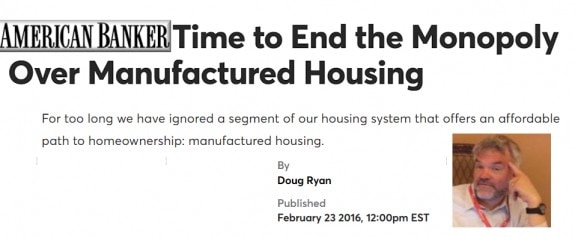
Then, when MHI member George Allen, part-time critic of the national association, has said there is a move to create a new association, and that he too has said there is an oligarchy running MHI, all of these are reason for industry professionals, investors, regulators, and attorneys to sit up and take notice.
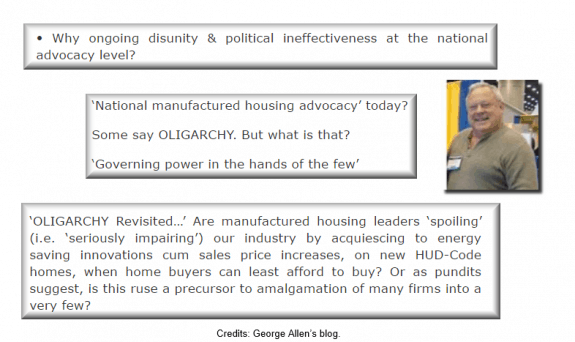
Frank Rolfe – an MHI/NCC member – criticized MHI on several levels, including failure to promote good news, or to respond to bad news. A normal association would do those things, Rolfe reasons, so why not MHI? Where’s that issue raised in UI’s study?

There isn’t just a little evidence of how Berkshire Brands – which often uses non-profit MHI in ways that apparently keeps regulations from being mitigated – and thus tends to limit the industry.
Golding – co-author of the Urban Institute report on manufactured housing – knew about federal preemption first-hand, per another source, as preemption has been discussed with him.
So, there’s a growing pile of evidence of apparently monopolistic actions, such as the 21st Mortgage “smoking gun” document, below. The related article, linked below the 21st document, spells out how hundreds of companies failed or sold out as a result of that one step by 21st, a Berkshire Hathaway company. That too is missing from UI’s report. Why? Oversight? Incomplete research? An undisclosed agenda? Or something different?
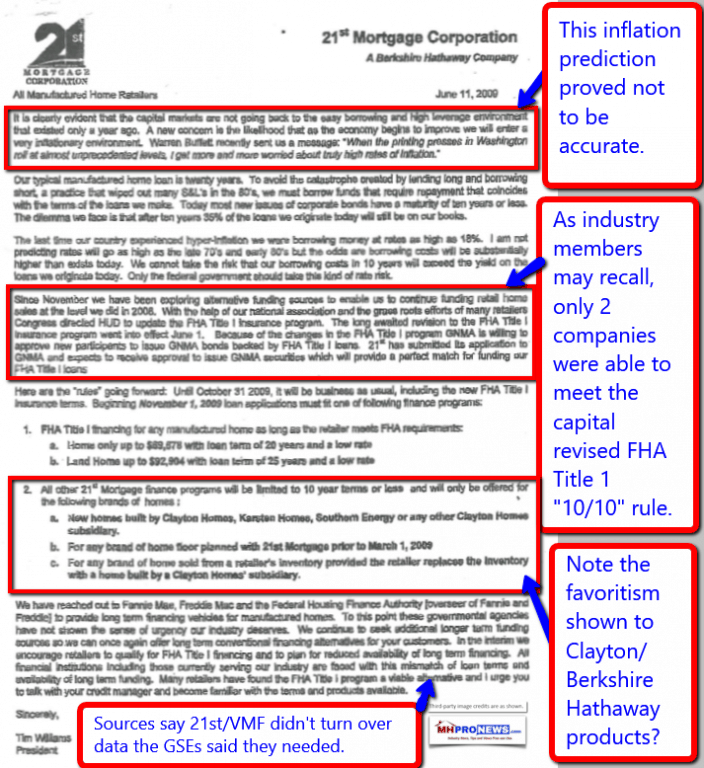
Recall that in the video interview, Clayton said they ‘have plenty of money,’ per Warren Buffett. But 21st was curtailing lending in a fashion that caused hundreds of independent retailers to fold, or forced them to sell out for reduced prices.
Apply Kevin’s words – plenty of money – to the excuse used in the 21st Mortgage letter, and it becomes a pretext for expanding the moat and killing off competition.
Those retail closures in turn caused the domino effect that led to several independent manufacturers closing, as this MHI document linked below reveals.
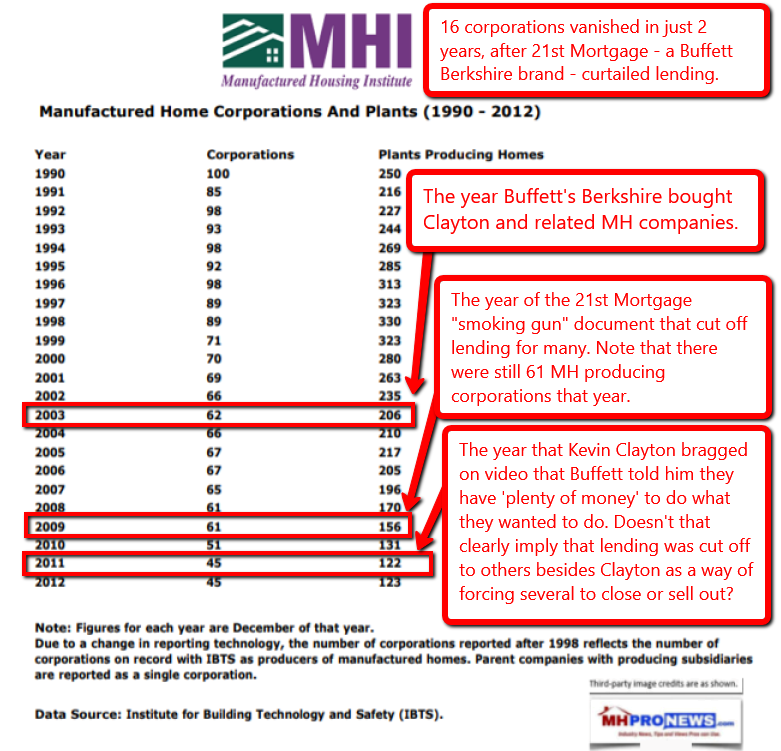
All of these are arguably evidence of monopolistic practices, and their outcomes predictably resulted in lower levels of new home sales. From the vantage point of Buffett’s moat principles, this outline makes perfect sense.
MHProNews has given MHI and Berkshire Hathaway brands numerous opportunities to respond, they have not. Is it because they know that their words will become part of a public record here, that could be used against them later during regulatory and/or legal proceedings?
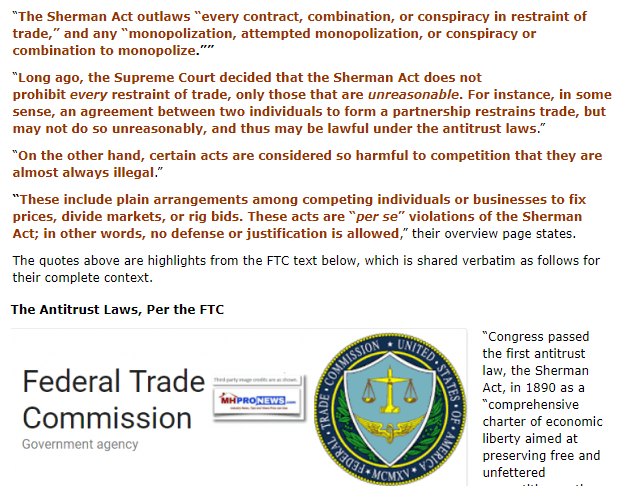
Urban Institute, Conflicts of Interest?
The UI report fails to make the standard types of disclosures that university level, or such serious non-profit research, normally make.
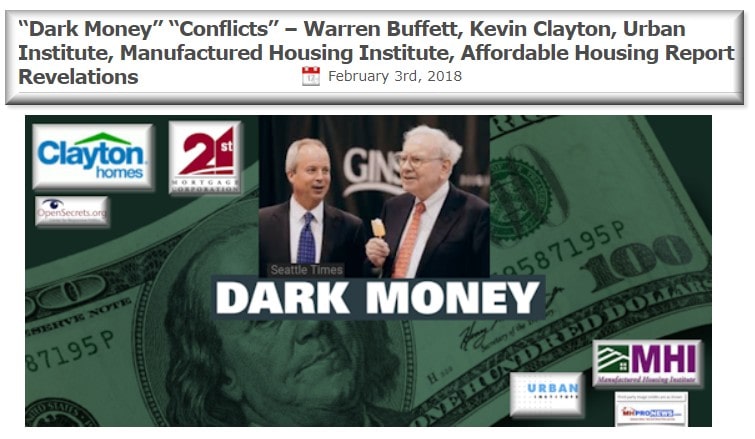
UI did provide upon request by MHProNews a link that included this graphic below. Those UI financials reflects that the lion-share of funding comes from 2 sources, the federal government, and nearly as much from foundations.
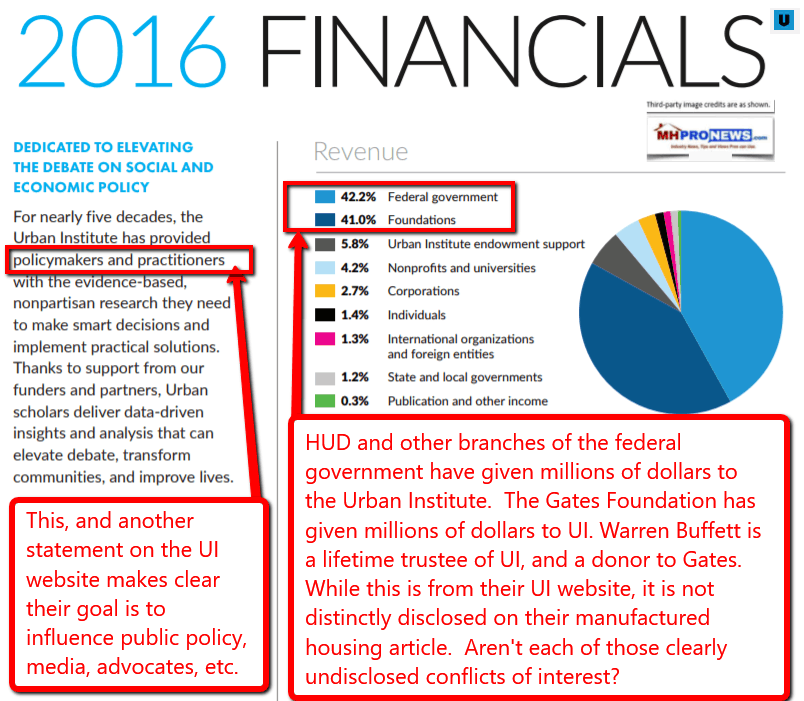
But what their report didn’t say was that Warren Buffett is a lifetime trustee of UI, per Who’s Who. That same source says that Buffett is on the board of the Bill and Melinda Gates Foundation.
- Buffet gave billions of dollars in Berkshire Hathaway stock to the Gates Foundation.
- The Gates Foundation gave millions of dollars to UI.
- HUD has given millions to UI too.
HUD is doing a top-down review of their manufactured housing program, as part of the Trump Administration’s regulatory shake up agenda. HUD’s new leadership reportedly promised independent producers that they will be fair, and that progress will be made implementing the Trump Administration’s regulatory agenda. That Trump plan is one that HUD Secretary, Dr. Ben Carson, embraces. Should HUD consider using another non-profit for research, in the light of the numerous issues and concerns raised about the UI report?
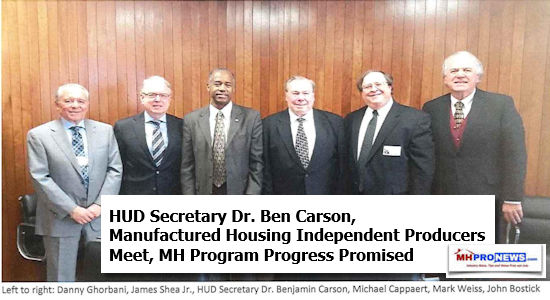
And suddenly this UI report comes out that says nothing about all of the allegations swirling around Pam Danner, whom one of the writers of their report – Golding – knew Danner, and was her supervisor?
Is the timing of their UI report coincidental? How can it be, when their report mentions the top-down HUD review of the program and its many alleged shortcomings?
That same UI report fails to make numerous points about enhanced preemption, and how zoning problems could be fixed almost overnight if HUD would act to enforce the law. How is that preemption oversight possible, when Golding – formerly with HUD, and a superior to Danner – was one of the 4 writers of the manufactured housing report?
Wasn’t the UI report framed in a way that kept Golding’s role in limiting manufactured housing obscured? Or where is the track record traced – i.e.: a source at MHI – that caused Danner to get this role over the HUD Code MH program in the first place?
That UI report speaks about lending issues, but fails to mention the kinds of revelations found in the unchallenged report below that quotes Tim Williams/21st Mortgage and then MHI chairman.
In that linked report, it is made clear that Williams and his counterpart at Vanderbilt Mortgage and Finance (VMF) both reportedly withheld information from the Government Sponsored Enterprises (GSEs). That in turn was used as a reason by the GSEs not to dive into chattel (personal property, home only lending) for years after the law went into effect. Lack of data is also the reason the GSEs stated why the pilot programs are fairly limited. It will thus take years for the GSEs to develop their lending, and during those years Berkshire Hathaway’s MH units continue to reap windfall profits.
So Berkshire Hathaway brands stand accused of being an obstacle to more lending, while posturing via MHI to much of the industry that they supported it.
Again, it is 21st’s Tim Williams’ own words, actions, and inactions that are revealing.
None of that is in UI’s report. Since they said lending is an issue, why was it not mentioned? Wasn’t the arguably avoidable vaporizing of hundreds of independents a clear cause for fewer manufactured home sales, which is the key question that the Urban Institute claims to be addressing?
Both MHI member and non-member producers MHProNews has spoken with think so. That’s why others have, or are considering, going vertical too.

http://www.mhpronews.com/blogs/daily-business-news/manufactured-housing-industry-new-hud-code-home-retailing-more-exploring-going-vertical/
MHI member, Sam Zell, made statements on an MHI stage that could be construed as aimed at MHI and the Berkshire Hathaway owned lenders. UI mentioned financing too, as has been noted, but without pointing out evidence or allegations of how MHI and Berkshire Hathaway have either fumbled, slow walked, or thwarted lending advances that didn’t rely upon Berkshire Hathaway. Federal data points to the fact that the two largest lenders in manufactured housing are both owned by Berkshire Hathaway.
MHARR has raised several ‘red flags’ about issues surrounding these matters. One of those is linked here, and another, here.
As the article linked below reminds readers, when you choke off lending, you kill companies. But the same is true for regulatory burdens. The reason the AZ association says they quit is because MHI failed to mitigate heavy regulations. That’s a claim that award-winning retailer Bob Crawford has also made on video, among others.
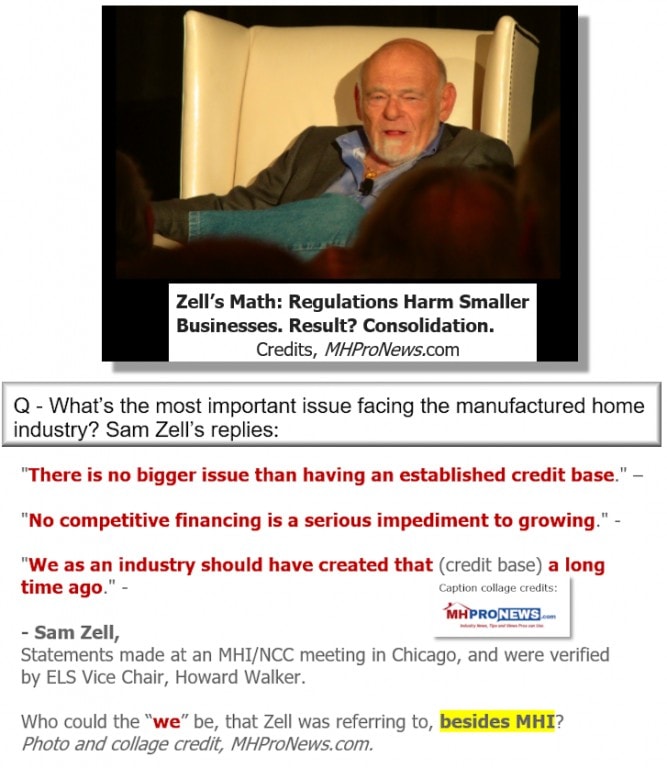
MHI promised to modify Dodd-Frank. But that law existed in part because of a candidate Mr. Buffett supported.
Manufactured Housing Institute VP Revealed Important Truths on MHI’s Lobbying, Agenda
MHI promised to reform Dodd-Frank, when an MHI VP said it wasn’t likely to happen, because then President Barack Obama was strongly against any change of the regulations.
The Top Twelve Questions for Manufactured Housing Institute (MHI) CEO, Richard “Dick” Jennison
The Masthead
The Manufactured Housing Institute has finally provided a series of written responses to concerns raised by a number of industry members. MHI did so to via an email to their members, as they ask them to renew their annual membership dues. Let’s make this hyper-simple.
Useful to Clayton, Buffett, and the Powers behind MHI
As the original MHProNews reports on the Urban Institute study reflected, the fingerprints of Warren Buffett’s Berkshire Hathaway, Clayton Homes and MHI are on that report. Sources at the Urban Institute told MHProNews that those sources were promised ‘anonymity.’ What?
Isn’t ‘anonymity.’ the opposite of transparency in such foundation-style research?
Those are the kinds of things that should have been disclosed in a normal research report as a footnote, cross-link, a side bar – any way that would disclose to readers a perceived or actual conflict of interest (COI) – between the Urban Institute, Berkshire Hathaway, Clayton, MHI, HUD, et al.
Yet there are no such disclosures, at least not yet. Will the Urban Institute now add them in?
So the question must be asked. Is the UI report – regardless if they colluded, were duped, or were manipulated into issuing it – part of a new effort to divert attention from the mounting evidence against Berkshire Hathaway, Clayton Homes, and MHI’s failures that benefit those Berkshire Brands in the manufactured housing industry?
Is their report meant to give them cover with the top-down review process underway at HUD?
So far, every report that we’ve issued on these topics and related topics have proven to interconnect with public statements by Warren Buffett and Kevin Clayton in that video interview. No serious industry observer or member can truly understand the answer to the Urban Institute’s valid question…
“Manufactured homes could ease the affordable housing crisis. So why are so few being made?”
…without spending an hour watching the Kevin Clayton video interview, and another two to three hours reading. And then one more hour watching that Clayton video interview again. Half a day, a long evening invested, which the Urban Institute must also do if they are serious about accuracy – and then a different picture emerges than the one their report painted.
The industry is being “consolidated” i.e. Buffett’s Moat is growing, per his arguably anti-competition principles.
Keeping sales relatively low keeps new parties from entering the production side of the industry, because it may not seem attractive at first blush.
Those are in keeping with what Buffett has preached in quoted statements about “the moat” for years.
The pattern of activities, allegations, documents, quotes, and known facts are there for those with the eyes, open mind, and will to see it.
But as Buffet is quoted in saying in the below, chains of habit are hard to break. Buffett counts on others not studying history. Where is any of that mentioned in the Urban Institute report on why manufactured housing sales levels are so low?
The allegations, documents, direct quotes, and evidence of why manufactured housing has been depressed for years leads to this point.
- By temporarily depressing manufactured housing,
- by constraining capital and lending,
- through regulatory burdens MHI did not seriously move to lift,
- by failing to address bad news,
- or failing to celebrate good news obtained from other sources than themselves,
many have been succumbed to the combination of pressures, and were forced out of business. All this during a time that the affordable housing crisis has grown.
That’s much of the case for why manufactured home sales are relatively low.
In time, when the powers-that-be have consolidated as much of the industry as they believe they can, will all of those roadblocks slowly vanish, and manufactured housing will roar to life, enriching Buffett and his units?
Will sales then soar by the tens of billions of dollars a year? Keep in mind, Kevin Clayton says that multi-year thinking is at the heart of the Buffett-Berkshire way.
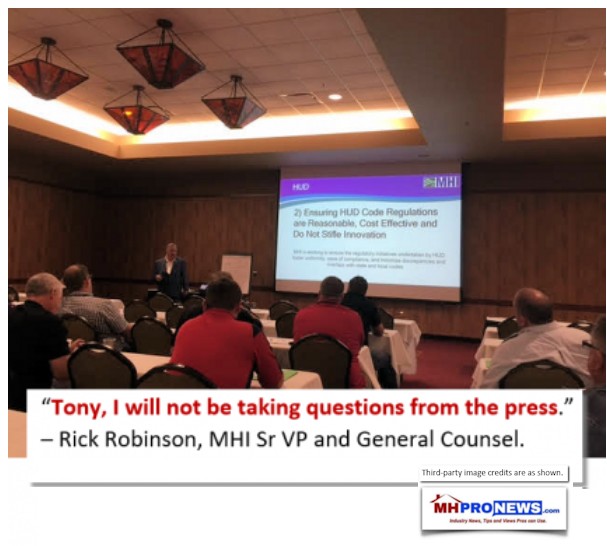
If these concerns were invalid, why has MHI VP Rick Robinson, or MHI President and CEO Richard Dick Jennison, avoided public discussion and debate over these problematic patterns that seemingly benefit a few to the harm of the many? Why don’t they rebut them, point for point?
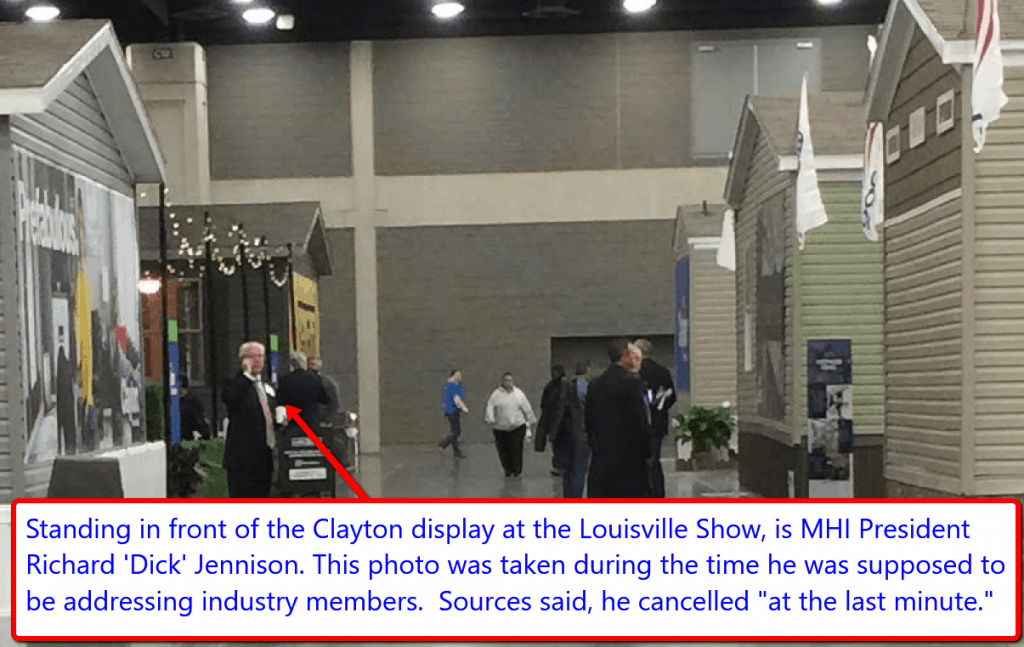
“We Provide, You Decide.” © ## (News, analysis, and commentary.)
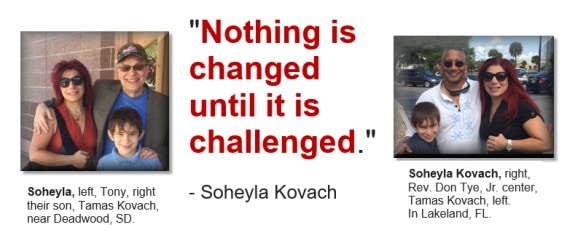
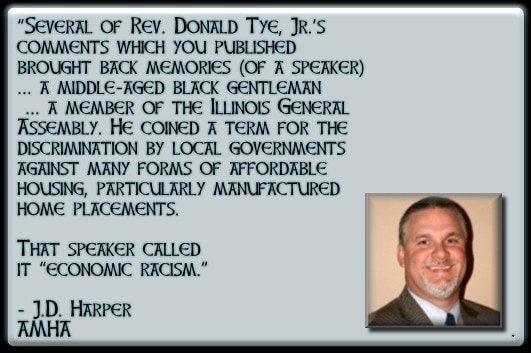
Notice: a special report on a related topic will appear this weekend. This post will be updated with a link to it. Don’t miss it.


Thousands Get It. Sign Up Today! Click here to sign up in 5 seconds for the manufactured home industry’s leading – and still growing – emailed headline news updates. You’ll see in the first issue or two why big, medium and ‘mom-and-pop’ professionals are reading them by the thousands. These are typically delivered twice weekly to your in box.
Follow us on Twitter:
ManufacturedHomes
@mhmsmcom
(Image credits are as shown above, and when provided by third parties, are shared under fair use guidelines.)

Soheyla is a managing member of LifeStyle Factory Homes, LLC, the parent company to MHProNews, and MHLivingNews.com.

